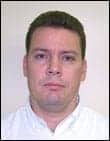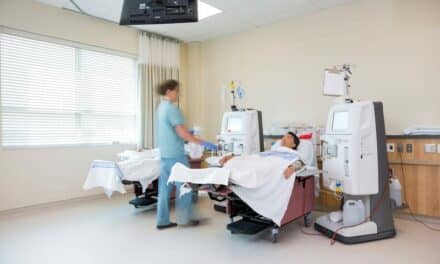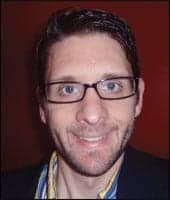 |
| Bill Cahill |
Bio-Medical Equipment Service Co (BMES), Louisville, Ky, began as a regional biomedical electronics service company in 1989 with three technicians—two of them co-owners—performing regional PM services and minimal depot repairs. The company has since grown into a national repair center serving more than 2,000 customers. BMET Bill Cahill recently reflected on the industry and the company’s trajectory with 24×7.
24×7: What is your history with the company?
Cahill: I’ve been with them for about 15 years. I got out of the Air Force and could not find anything in avionics, so I kind of fell into biomed without knowing what it was. I worked on aircraft radios and radar equipment in an avionics shop at Beale AFB, Calif. There was some overlap since both military avionics and health care electronics have extremely high standards with small margins for error and endless opportunities to learn. When I first came to BMES, I performed preventive maintenance inspections in the field. I would go to small hospitals and check all of their equipment. That evolved into doing field service repairs and bench work. Eventually, I became the lead tech for our depot repair service on pulse oximeter cables. Soon following, digital TV channels became widespread. Since we had already established ourselves as a trusted resource on telemetry, I began calling biomed departments to make sure the telemetry they were running was not going to be knocked offline by the new TV signals. Many people didn’t realize they were in harm’s way and appreciated a fellow biomed contacting them. I had such a warm reception that it changed my job. Now I get to interact person-to-person with the biomeds, working as their advocate—and doing PR for BMES. It’s my job to be aware of and communicate their concerns.
24×7: What is your company’s niche?
Cahill: We specialize in physiological monitoring, especially wireless telemetry. BMES is best known for our quick-turn-around repair service. We repair equipment at the component level, so it really saves the customer money as opposed to ordering boards from the OEM. We also purchase, refurbish, and sell the transmitters, receivers, and stationary monitors and deal in the relevant accessories.
24×7: How has your company grown?
Cahill: We’ve grown largely through word of mouth and personal referrals. When we began national depot service, we had a handful of clients and repaired a few dozen transmitters each month. We now have a customer base of over 1,200 repeat clients. Biomeds from hospitals, surgical centers, physician groups, and third parties send us more than 300 telemetry transmitters each month. That expertise allowed us to extend into module depot repair, which has evolved into a substantial area of service. We also try to combine our long-standing commitment to customer service with the latest in technology.
Our new online store is a perfect example of that blend. Lots of people have Web sites that advertise their services, but they require you to call them for updated pricing. The few that did give pricing were either focused on a specific geographical area or they only accepted credit cards for payment. Biomeds are too busy to wait on the phone for repair and replacement rates. And many only have purchase orders at their disposal. Serving today’s biomed meant that we’d need to be open 24/7, give them all the information they need, and then provide a channel for them to act on that info. The online store is open 24/7. We close at 5 pm EST, but with customers on the West Coast and in Hawaii, we wanted to be sure they had more options than getting voice mail and waiting until the next business day. All of our pricing is online and upfront. Occasionally, people will want to call to say, ‘We’re ordering 20 … .’ If we’re here, we’d love to chat with them. However, we’re ruthless with cutting through the red tape they sometimes have to go through. Sometimes they need two transmitters at 5 o’clock and we’re closed. They can go online and be done with it. With biomeds, when somebody needs equipment they needed it yesterday. We’re in the basement until a crisis—then we’re front and center!
We have also moved to a larger facility with 15,000 more square feet. The number of employees has grown in the past 15 years from five to 14. We wanted the potential for more diversification for other depot services, for manufacturers, and for the hospital community. We’re roughly 5 minutes away from UPS’ hub, and we get all of our packages by 10:30 am, regardless of how they’re shipped in, which makes it a little more convenient.
24×7: What are some other services you provide?
Cahill: Other depot services are bedside monitor repair, fetal transducer repair, pulse oximeter cable repair, O2 blender overhauls, and suction regulator repairs. We also sell replacement telemetry transmitters and bedside modules. There’s an alternative source to going to OEM. We rent and sell telemetry systems—all used. We refurbish and have warranties we put on the equipment, basically setting it to the manufacturer’s specifications.
24×7: How is your industry changing?
Cahill: Twenty-five years ago, it wasn’t unreasonable to expect the biomed to be able to handle many repairs in-house. The complexity of the equipment and the time it takes in getting only the parts you need for repair is increasing the demand for specialized shops like ours. In telemetry, we’re noticing more and more hospitals increase the number of telemetry channels they’re using—rather than installing more hardwire monitors. The number of channels they have responsibility for has grown exponentially, but their staffing hasn’t. We offer them the opportunity to take the overflow off their hands. Telemetry is high-end equipment, and most hospitals cannot afford the cost to dedicate one person to it or to maintain stock on pricey specialized parts. The biomed may cover it, but they can’t afford to have all of the test equipment necessary for many of the repairs. The telemetry equipment has evolved—it’s now surface-mount technology and multilayer boards. It’s taken more repairs away from the biomed tech in-house and forced them to buy the entire board from the manufacturer or send the unit out for repair. It’s made it cost and time prohibitive for them to work on it in the shop. It’s like cars: You really can’t tinker on it yourself anymore; you have to take it to a shop or dealership.
24×7: What is the biggest challenge for your company right now?
Cahill: It is in diversification, so that we stay on top of what our customers need, not on what we’ve always done. Talking to biomeds helps us stay abreast of new service opportunities. No company can do everything, so we try to identify areas where the biomeds have few alternatives to the OEM. We believe that if we branch out, then everyone will benefit from the competition in pricing and quality of service.
24×7: What distinguishes you from the competition?
Cahill: I can sum it up in one word: relationships. Lots of companies fret over revenue. We believe that if you pay attention to your customers’ business, they’ll take care of yours. I serve as an advocate for the biomeds, representing their needs to the rest of the company. After all, I am a BMET too. I find out what their needs are and present those to the various departments. I will go out in the field and talk to biomeds directly. I recently visited the biomed shop at a regional children’s hospital. They mentioned how tracking and ETA is sometimes an issue. When I got back to the office, we put together a plan that sent an e-mail notification when we received their equipment and another when it went back out, including tracking numbers. It saves at least one call, sometimes two. And when the floor calls down to see how much longer, you have an answer. It was customer feedback that led to customizable billing and no RMA/RGA requirement.
Similarly, our turnaround time has been rated as one of the fastest in the industry. We consistently average 3 days of in-house time for telemetry repairs. We’re also committed to competitive pricing, though never at the expense of compromising quality components. It all goes back to acting as a biomed advocate. Our job is to enhance and facilitate their job. If we’re not making their job easier, then we’re willing to change. After all, we’re not here if they don’t send us equipment.
24×7: Where will your company be 5 years from now?
Cahill: We have our online store, and we want that to be a vibrant part of our business. Our hope is that we will grow in products and services offered on it, based on the feedback we get from biomeds, purchasing agents, and medical staff. We would like to see it grow to a quarter of our business and go from there.
We would like our free online newsletter subscription to continue its growth. It allows us to send relevant product information to the people who need it, instead of general e-mails to those that don’t. The newsletter service sends each biomed or contact the specific information on the equipment they have in their hospital. If you have Philips M2601A transmitters you receive information on that, and not GE ApexPro transmitters. If we don’t have something new for you, you may not get something from us this month. We also want to add more value to the newsletter by becoming an industry leader in distributing information to biomeds about equipment we repair, service updates, legislation effects, technical help, etc. We also want to diversify our depot services, adding repairs that benefit the hospital community, the biomed community, and the health care community.
Service beyond expectations is what we strive for, “the unexpected in a good way.”
Judy O’Rourke is associate editor of 24×7. Contact her at .





